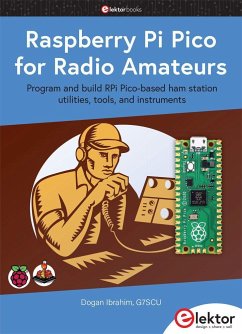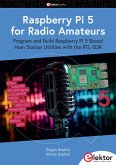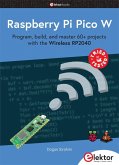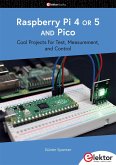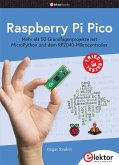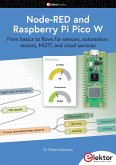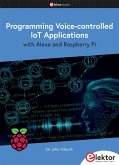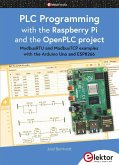Although much classical HF and mobile equipment is still in use by large numbers of amateurs, the use of computers and digital techniques has now become very popular among amateur radio operators. Nowadays, anyone can purchase a EUR4 Raspberry Pi Pico microcontroller board and develop many amateur radio projects using the "Pico" and some external components. This book is aimed at amateur radio enthusiasts, Electronic Engineering students, and anyone interested in learning to use the Raspberry Pi Pico to shape their electronic projects. The book is suitable for beginners in electronics as well as for those with wide experience.
Step-by-step installation of the MicroPython programming environment is described. Some knowledge of the Python programming language is helpful to be able to comprehend and modify the projects given in the book. The book introduces the Raspberry Pi Pico and gives examples of many general-purpose, software-only projects that familiarize the readerwith the Python programming language. In addition to the software-only projects tailored to the amateur radio operator, Chapter 6 in particular presents over 36 hardware-based projects for "hams", including:
Station mains power on/off controlRadio station clockGPS based station geographical coordinatesRadio station temperature and humidityVarious waveform generation methods using software and hardware (DDS)Frequency counterVoltmeter / ammeter / ohmmeter / capacitance meterRF meter and RF attenuatorsMorse code exercisersRadioStation Click boardRaspberry Pi Pico based FM radioUsing Bluetooth and Wi-Fi with Raspberry Pi PicoRadio station security with RFIDAudio amplifier module with rotary encoder volume controlMorse decoderUsing the FS1000A TX-RX modules to communicate with Arduino
All programs discussed in this publication are available from the book's resources and information web page at www.elektor.com/20041.
Hinweis: Dieser Artikel kann nur an eine deutsche Lieferadresse ausgeliefert werden.
Step-by-step installation of the MicroPython programming environment is described. Some knowledge of the Python programming language is helpful to be able to comprehend and modify the projects given in the book. The book introduces the Raspberry Pi Pico and gives examples of many general-purpose, software-only projects that familiarize the readerwith the Python programming language. In addition to the software-only projects tailored to the amateur radio operator, Chapter 6 in particular presents over 36 hardware-based projects for "hams", including:
Station mains power on/off controlRadio station clockGPS based station geographical coordinatesRadio station temperature and humidityVarious waveform generation methods using software and hardware (DDS)Frequency counterVoltmeter / ammeter / ohmmeter / capacitance meterRF meter and RF attenuatorsMorse code exercisersRadioStation Click boardRaspberry Pi Pico based FM radioUsing Bluetooth and Wi-Fi with Raspberry Pi PicoRadio station security with RFIDAudio amplifier module with rotary encoder volume controlMorse decoderUsing the FS1000A TX-RX modules to communicate with Arduino
All programs discussed in this publication are available from the book's resources and information web page at www.elektor.com/20041.
Hinweis: Dieser Artikel kann nur an eine deutsche Lieferadresse ausgeliefert werden.

